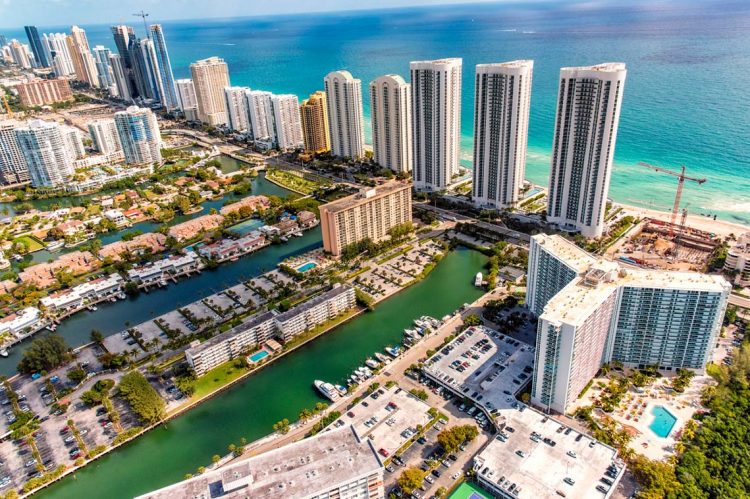Florida held the top five hottest commercial real estate metro markets: Orlando, Miami, Palm Beach, Fort Lauderdale, and Fort Myers, according to NAR’s Commercial Real Estate Metro Market Conditions Index for the first quarter of 2022, released this week.
Key highlights:
- Florida held the top five hottest commercial real estate metro markets: Orlando, Miami, Palm Beach, Fort Lauderdale, and Fort Myers.
- The South region is the hottest commercial real estate region, accounting for 11 of the top 16 commercial real estate markets, including the Florida markets (Savannah, Austin, Atlanta, Asheville, Charleston, Nashville) followed by the West region with four markets (Riverside, Las Vegas, Bend, Provo), and the Northeast with one market (Boston).
Top 16 commercial real estate markets
- Orlando-Kissimmee-Sanford, Florida
- Miami-Miami Beach-Kendall, Florida
- West Palm Beach-Boca Raton-Delray Beach, Florida
- Fort Lauderdale-Pompano Beach-Deerfield Beach, Florida
- Fort Myers, Florida
- Savannah, Georgia
- Austin, Texas
- Boston-Cambridge-Nashua, Massachusetts
- Riverside-San Bernardino-Ontario (Inland Empire), California
- Atlanta-Sandy Springs-Roswell, Georgia
- Asheville, North Carolina
- Las Vegas-Henderson-Paradise, Nevada
- Bend-Redmond, Oregon
- Charleston-North Charleston, South Carolina
- Nashville-Davidson-Murfreesboro-Franklin, Tennessee
- Provo-Orem, Utah
Gay Cororaton, research economist for the National Association of REALTORS® and author of the report, wrote the following about the top market, Orlando:
“Orlando’s economic and commercial market conditions are all stronger than national levels, garnering an index of 84 (meaning Orlando is outpacing the U.S. on 21 out of 25 indicators). Wages are rising 9% in Orlando compared to 4% nationally. In 2020, 10,000 people migrated to Orlando from other states. The multifamily asking rents are up 26% compared to 11.4% nationally. The office vacancy rate is just 8% compared to 12.2% nationally. The industrial vacancy rate is 3.6% compared to 4.1% nationally. The retail vacancy rate is at 3.8% compared to 4.5% nationally. Orlando is a vacation destination, with 19% of the workforce employed in hotel/lodging compared to 10% nationally.
“The main risk area in Orlando’s commercial market is the hotel/lodging sector, as rising airfare and gasoline prices make travel costlier.”
To view the full report and breakdowns by state, click here.












